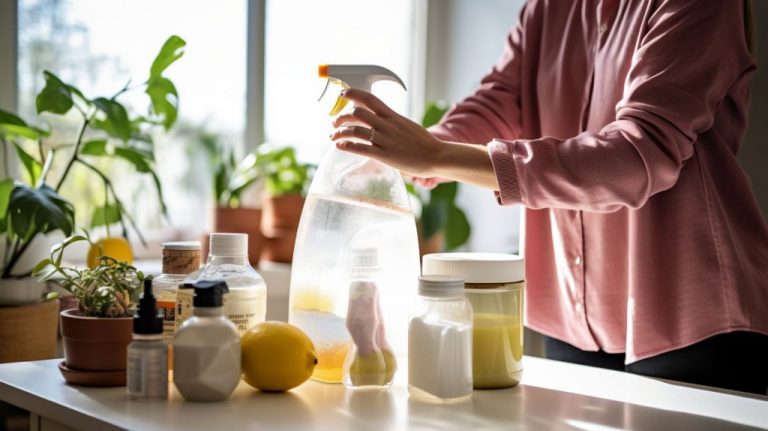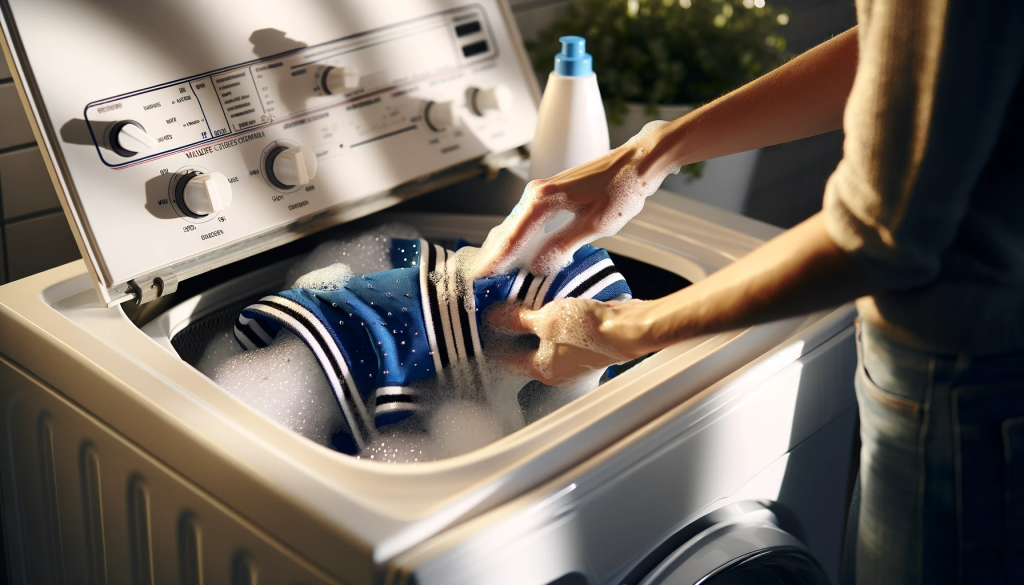family, homemade laundry soap offers a gentle alternative to the chemical-laden options on the market, ensuring that your loved ones’ skin stays soft and irritation-free. Plus, by creating your own detergent, you contribute to a healthier planet with less chemical waste. For more sustainable living ideas and eco-friendly products, check out InktasticMerch and discover a range of items that align with your values.
Sick of harsh chemicals and sky-high prices for laundry detergents? Whipping up your own laundry soap is both simple and safe, using everyday ingredients. This guide provides step-by-step instructions to craft an effective detergent that’s gentle on your wallet and your garments.
Let’s dive in!
Key Takeaways
- Crafting your own laundry detergent reduces costs and decreases exposure to the harsh chemicals found in store-bought brands.
- Customize your soap using natural ingredients such as borax, washing soda, and essential oils to achieve your desired scent.
- To avoid chunky homemade soap, ensure all ingredients are fully dissolved and store in an airtight container.
- Making your detergent is environmentally friendly, reducing harmful chemicals released into nature.
- Homemade detergents work effectively in both regular and high-efficiency washing machines when formulated with low-sudsing ingredients.
Benefits of Making Your Own Laundry Soap
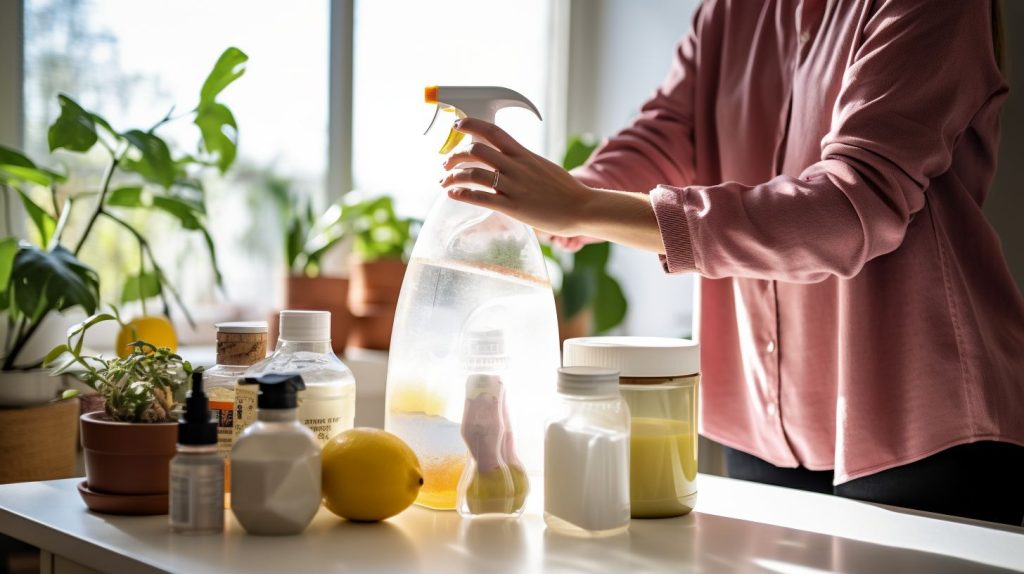
Crafting your laundry soap brings numerous advantages. It’s economical, provides safer cleaning for your family, and lets you personalize the ingredients according to your preferences.
Lower Cost
Opting for homemade laundry soap reduces chemical use and is easy on your budget. The bulk quantities of DIY detergent ingredients cost significantly less compared to constantly purchasing commercial brands.
With each homemade batch, the cost per load drops dramatically, leading to substantial savings over time.
Switching to a DIY approach is a pocket-friendly choice that accumulates savings month after month. Instead of spending on commercial brands, you create your unique mix with natural ingredients for mere pennies per load.
This strategy not only supports your household budget but also provides a cost-effective solution to your daily cleaning tasks.
Safer for Your Family
Homemade laundry detergent offers a chemical-free alternative to conventional products. By taking charge of the process, you eliminate the potential hazards of exposing your family to harsh chemicals.
Commercial products often include components that might trigger skin irritation or allergic reactions in sensitive individuals. DIY soap allows you to select ingredients carefully, crafting a nontoxic detergent that’s gentle on everyone’s skin.
Protecting your loved ones becomes easier with natural cleaning solutions that not only keep harmful substances at bay but also contribute to a greener lifestyle.
Enjoy the assurance of knowing precisely what cleanses your family’s clothing—pure, safe ingredients blended by you for ultimate protection and health benefits.
Customizable Ingredients
Creating your laundry soap ensures safety for your family and gives you full control over the components of each batch. Customize the scent, intensity, and eco-friendliness to meet your unique needs.
Add natural scents like lavender or lemon through essential oils, or opt for a scent-free wash.
Customizable ingredients make it perfect for those with sensitivities or allergies, allowing you to design a personalized laundry solution that minimizes reactions.
risks of irritation.
Discover the ideal blend of borax, washing soda, and bar soaps like Fels Naptha to cater perfectly to your household laundry demands.
Ingredients to Use in Homemade Laundry Soap
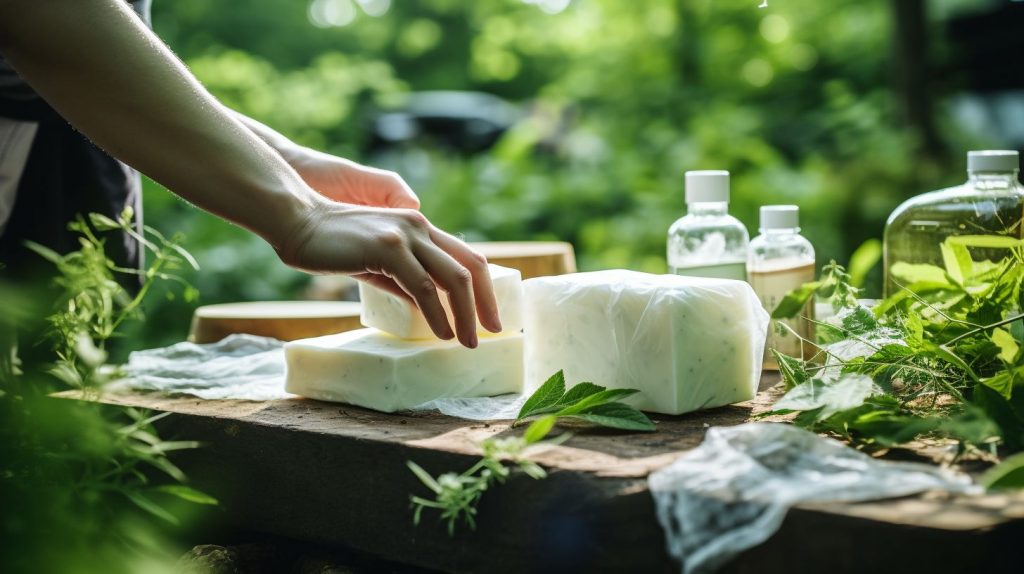
Crafting your own laundry soap calls for natural, safe ingredients that effectively cleanse fabrics. From essential oils that add a delightful scent to washing soda that fights stubborn stains, there are numerous choices to personalize your DIY detergent.
List of Safe Ingredients
Selecting gentle yet effective ingredients is crucial when making eco-friendly and non-toxic laundry soap at home. Here’s a recommended list of safe options:
- Borax: This natural mineral enhances the cleaning capabilities of soap, efficiently tackling stains and neutralizing odors.
- Washing soda: Also referred to as soda ash or sodium carbonate, this ingredient excels at lifting difficult stains and boosts laundry soap effectiveness.
- Soap flakes: Sourced from pure vegetable oils or plant-based materials, these biodegradable flakes provide a tender cleansing touch to textiles.
- Liquid Castile soap: A multipurpose, plant-based soap derived from oils such as olive oil, known for its environmental friendliness and gentle skin compatibility.
- Laundry bar soap (e.g., Zote, Fels Naptha): These traditional bar soaps are crafted for efficient stain removal and fabric care in homemade detergent creations.
- Dawn dish soap: Often incorporated in small quantities for its potent grease-cutting properties in DIY laundry formulations.
Ingredients to Avoid in Store-Bought Detergents
The toxic chemicals present in commercial detergents pose risks to both personal health and the environment. By crafting your own laundry soap, you can evade these harmful elements and embrace a safer, greener alternative.
Harmful Chemicals
Store-bought detergents frequently contain hazardous chemicals like diethanolamine, sodium lauryl sulfate (SLS), sodium laureth sulfate (SLES), phosphates, and formaldehyde, all linked to severe health concerns in animal studies, including liver, kidney, and reproductive issues.
In addition to their detrimental health effects, these toxic ingredients threaten the environment, further substantiating the need to opt for safer, natural ingredient-based homemade detergents.
Specific caution is advised concerning diethanolamine and SLS/SLES, given their documented toxicity in scientific analyses. Furthermore, phosphates contribute to aquatic pollution, while formaldehyde is recognized as a carcinogen.
Negative Impact on the Environment
Replacing commercial detergents with homemade varieties significantly lessens the environmental toll of destructive chemicals. Conventional detergents emit volatile organic compounds (VOCs), exacerbating air and water pollution and endangering ecosystems and human health alike.
Choosing environmentally friendly options not only reduces these hazardous emissions but also keeps your laundry fresh and clean, all while being kind to the planet.
Creating
This small adjustment can significantly benefit the environment by decreasing the release of harmful chemicals into our surroundings.
How to Make Homemade Laundry Soap
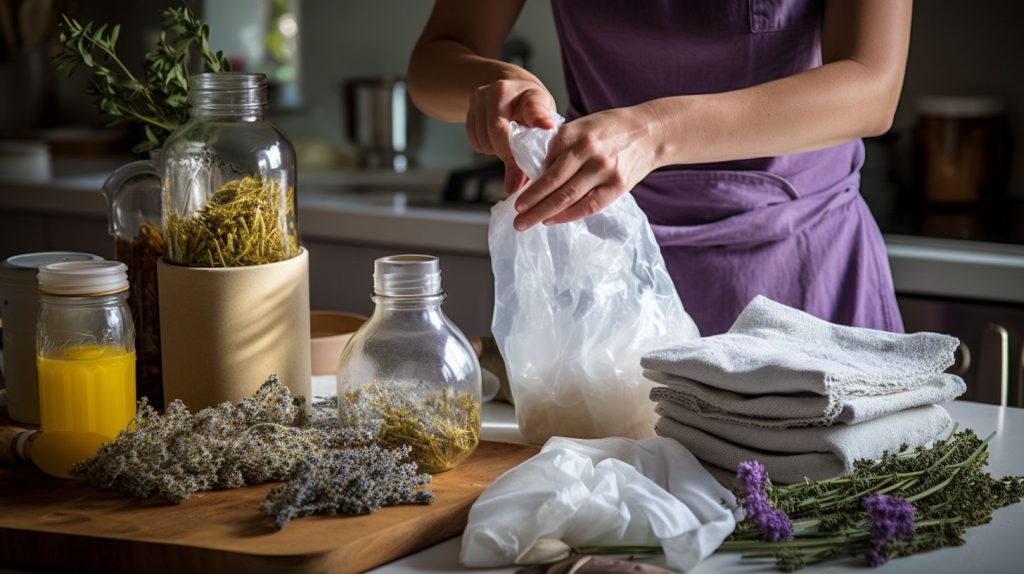
Creating your own laundry soap begins with gathering the right tools and ingredients, followed by carefully following the instructions and expert tips to produce a successful batch of detergent.
Gathering Equipment and Ingredients
To craft homemade laundry soap, start by collecting the essential components and tools. You’ll need Fels Naptha, washing soda, borax, and either pure bar soap or castile soap. A 5-gallon bucket and hot tap water are also required, along with a grater or shredder for the soap preparation. Consider using a one-gallon jug and a pot to dissolve the grated soap.
These supplies are vital for making an effective and cost-efficient laundry detergent.
Step-by-Step Instructions
Once you’ve gathered your materials, proceed with these steps to create your homemade laundry soap:
- Use a food processor to grate or chop the soap bar into fine pieces.
- Bring 8 cups of water to a boil in a large pot.
- Add the grated soap to the boiling water, stirring until it completely dissolves.
- In another bowl, combine 2 cups each of borax and washing soda.
- After dissolving the soap in water, mix in the borax and washing soda, ensuring everything is well-blended.
- Allow the mixture to set overnight, thickening as it rests.
- When using your homemade laundry detergent, add about 1 cup per load in your washing machine.
Tips for Success
For optimal results, store your homemade laundry soap in an airtight container to avoid clumping and ensure its effectiveness. Accurate measurements are crucial to maintaining the correct balance and preventing any chunkiness in the detergent.
If you’re using a high-efficiency washer, ensure that your soap is suitable for such machines for the best cleaning performance. Key to your success is mindful storage, precise measurement, and ensuring compatibility with appliances.
For longevity, recognize that your natural laundry soap typically remains effective for about six months to a year with proper storage. Feel free to customize your soap by experimenting with different bar soaps or adding essential oils, while being mindful of potential allergies or sensitivities.
Tips for Making and Using Homemade Laundry Detergent
Ensuring your detergent stays effective hinges on proper storage. Accurate measuring, avoiding clumps, using it in HE washers, and awareness of its shelf life are crucial for success.
Proper Storage
Store your homemade laundry detergent in a well-sealed container, whether glass or plastic, to maintain its effectiveness. For liquids, a 2-liter capacity container should be used, adding 6 cups of room temperature water and 1 cup of washing soda.
Preserve the quality and longevity of your DIY laundry soap by choosing an airtight, tightly-sealing container, whether glass or plastic, ensuring your cleaning solution remains potent.
Measuring Carefully
When preparing your soap, grate the bar carefully to ensure accurate measurements for your homemade concoction.
Accurate amounts of Borax and washing soda are essential for the success of your homemade laundry soap.
Avoiding Chunkiness
To ensure your homemade detergent remains smooth, it’s vital to dissolve all ingredients completely. This can be accomplished by using hot water and mixing the solution thoroughly until the components are evenly blended. Following precise recipe instructions and correctly diluting ingredients can help reduce or even eliminate chunkiness. Make sure to refer to troubleshooting tips in various recipes that specifically address chunkiness concerns. Also, fully dissolving grated Fels-Naptha soap before combining it with other ingredients can significantly prevent chunkiness during the detergent creation process.
Using in HE Washers
Homemade laundry detergent is suitable for high-efficiency (HE) washers as long as it is formulated to produce low suds. Adhering to recommended usage amounts is crucial to avoid excess suds and to achieve optimal cleaning. Whether you prefer liquid or powder, homemade laundry soap offers an eco-friendly alternative for users of HE washers. Measure carefully and avoid overpouring to maintain detergent effectiveness while preventing excessive sudsing that could disrupt your machine’s performance.
Shelf Life and Effectiveness
Your homemade laundry detergent will remain effective for up to six months if stored correctly. Keep it in a cool, dry location away from moisture and direct sunlight to prevent clumping and prolong its usability. Carefully measuring soap usage is key, as using too much can result in residue on clothing. Rinse thoroughly after washing to remove any soap particles that could irritate the skin or diminish fabric softness. For maximum shelf life and efficacy, it’s better to make smaller, more frequent batches instead of large ones that might not be used promptly.
Conclusion
Making your own laundry soap offers advantages like cost savings and the ability to customize ingredients to meet your family’s needs. By utilizing safe, natural components, you can craft a detergent that’s gentle on both clothes and the environment. With basic materials and straightforward steps, anyone can create homemade laundry soap, delivering effective cleaning without the use of harmful chemicals or additives. Experiment with various recipes to discover the formula that works best for you, whether in liquid or powder form, providing a sustainable and eco-friendly solution for your household cleaning needs.
FAQs
1. What ingredients do I need to make homemade laundry soap?
For homemade laundry soap, you’ll need washing soda, Borax, and a bar of soap.
2. Can I use homemade laundry soap for all types of washing machines?
Yes, this type of soap is suitable for both top-loading and front-loading washing machines.
3. How much homemade laundry soap should I use per load of laundry?
Typically, 2-4 tablespoons of homemade laundry soap are sufficient for a standard load.
4. Is it cost-effective to make homemade laundry soap compared to buying commercial detergent?
Making your own laundry soap can be more budget-friendly over time, particularly if you frequently wash large amounts of laundry.
5. Are there any special storage considerations for homemade laundry soap?
Store homemade laundry soap in an airtight container, away from moisture and sunlight, to maintain its quality.
For more tips and guides on creating eco-friendly solutions and other DIY projects, be sure to explore our Blog where you’ll find a wealth of information to help you live sustainably and creatively.

